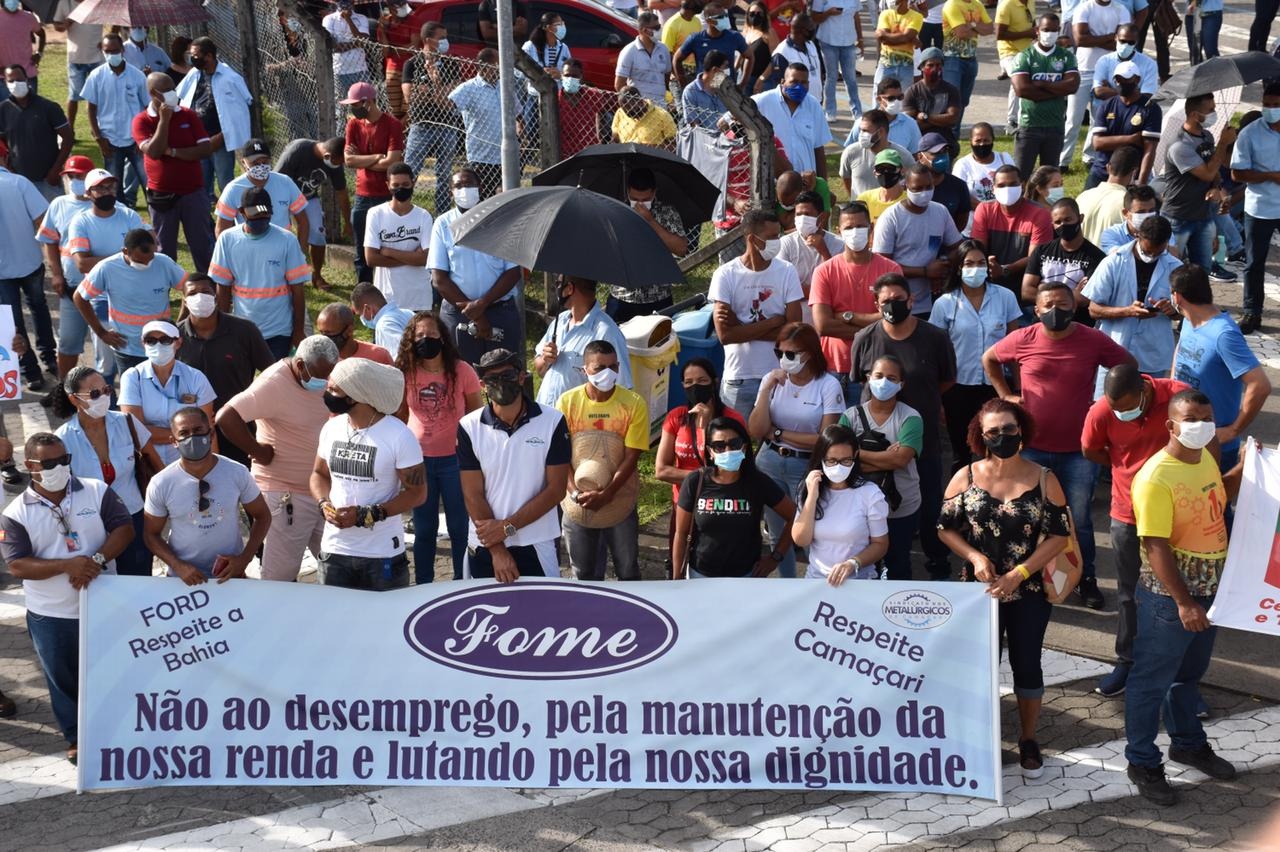22 February, 2021Ford workers are looking for alternative ways to protect their jobs and have agreed to begin talks with the US carmaker’s global management team. They are also looking into the possibility of introducing a bill to nationalize Ford’s operations in Brazil.
In January, Ford announced the closure of three plants in Brazil. According to Brazil's Inter-Union Department of Socioeconomic Statistics and Studies, almost 124,000 direct and indirect jobs are at stake.
The Taubaté metalworkers’ union (Sindmetau) signed an agreement with Ford during a conciliation hearing at the regional employment tribunal on 18 February. It was agreed that talks would be held with the US carmaker's global management team on 25 February to try and prevent Ford from shutting down operations in Brazil.
Under the agreement, jobs, wages and benefits of Taubaté workers will be maintained until the end of the negotiations, and production will resume on 22 February.
Workers will continue to campaign to protect their jobs; they recently held a three-hour procession from the Ford plant in Taubaté.
The Camaçari metalworkers' union attended a conciliation hearing at the regional employment tribunal (TRT5-BA) on 18 February. They agreed that plant workers would return to work on 22 February, and Ford agreed to pay their wages for three months, giving time for talks to take place between the parties.
In addition, the Human Rights Committee met with representatives from the unions, the judiciary, parliament and other groups to look into the possibility of introducing a bill to nationalize the carmaker's operations in Brazil. Their aim is to reverse the impact of the plant closures and deindustrialization in the country.
Unions from around the world have sent letters of solidarity, calling for active industrial policies that put workers' interest on the same level as those of company owners.
Valter Sanches, IndustriALL Global Union general secretary, says:
"I congratulate Ford workers and unions for fighting to protect their jobs. They have already come out victorious – the employment courts have ruled favourably, paving the way for further negotiations. I'm grateful for the solidarity unions around the world have shown with colleagues in Brazil.”



